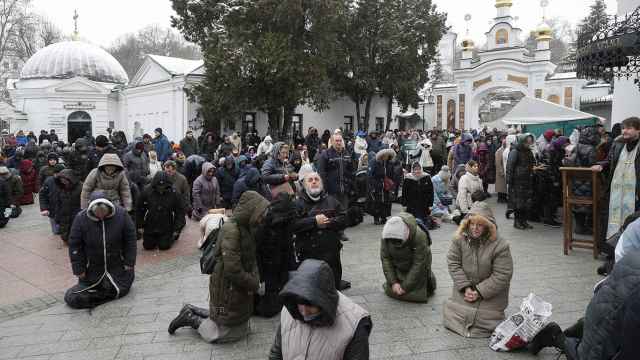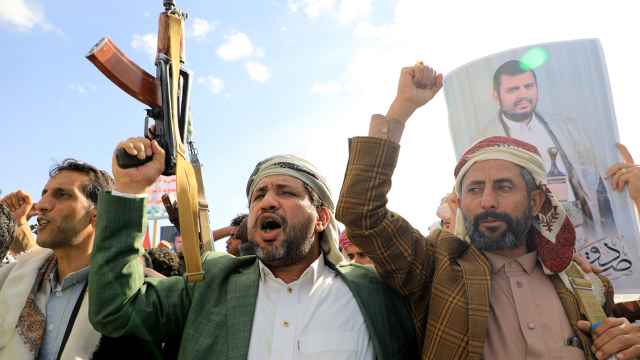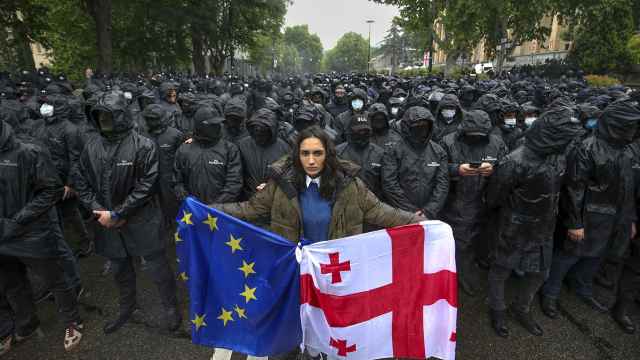As short-story author Sergei Dovlatov would have written, my characteristic trait is that I have the unfortunate habit of showing up at the theater only after the actors have taken their final bows. Perhaps that is why it took me several months to ponder over the signing of a letter by Russian academicians in defense of two scientific foundations — the Russian Foundation of Basic Research, or RFBR, and the Russian Humanitarian Foundation, or RHF.
Despite the obvious correctness of the position taken by the document, I dragged my feet in signing it. As a result, the letter was sent to President Dmitry Medvedev on July 5 without my signature. That does not make the letter any less weighty of course: It was signed by 2,233 academics, making it perhaps the single most unanimous expression of our academic community in the last decade.
The meaning of the letter is simple. The RFBR and the RHF are instruments for the financing of basic science. These are organizations that receive money from the government and distribute it on a competitive basis. Peer review plays a decisive role in the allocation process — that is, scientists working in the same field as the applicant assess the merits of the proposed research or project.
Peer review is not without its flaws. For example, it clearly tends to be conservative by favoring scientists with previous achievements and by giving the “leading scientists” on the review board the ability to significantly influence new priorities. But that is only a reflection of the natural conservatism of basic science. Other instruments are needed to achieve breakthroughs, especially in the applied sciences.
Foundations such as the RFBR and the RHF are needed — not for achieving innovative breakthroughs but for the continued existence and development of ordinary, even routine, scientific work. Without that underlying bedrock of fundamental science, no dynamic system for national education or innovative breakthroughs would be possible.
Over the 17 years of their existence, through both lean and plentiful years, the RFBR and the RHF have proven that they are the most efficient and effective instruments for the allocation of money for basic research in our country.
Two things are required from the president and the government. First, funding cuts to those institutions should not only end, but financial support should increase. Second, the government should consider the importance of basic research, currently overlooked in the federal budget. In response, the government could request significantly greater transparency — but this does not mean greater bureaucratic accountability. For example, national borders play almost no role in fundamental science.
The use of Russian scientists living abroad as specialists improves the transparency of the allocation of funds and the quality of research being funded. (In most academic disciplines, the leading scholars coming from Russia work in the world’s best universities and laboratories.) These scholars would then become participants in the academic life of Russia, and that would be good for science and Russia.
Konstantin Sonin is a professor at the New Economic School in Moscow and a columnist for Vedomosti.
A Message from The Moscow Times:
Dear readers,
We are facing unprecedented challenges. Russia's Prosecutor General's Office has designated The Moscow Times as an "undesirable" organization, criminalizing our work and putting our staff at risk of prosecution. This follows our earlier unjust labeling as a "foreign agent."
These actions are direct attempts to silence independent journalism in Russia. The authorities claim our work "discredits the decisions of the Russian leadership." We see things differently: we strive to provide accurate, unbiased reporting on Russia.
We, the journalists of The Moscow Times, refuse to be silenced. But to continue our work, we need your help.
Your support, no matter how small, makes a world of difference. If you can, please support us monthly starting from just $2. It's quick to set up, and every contribution makes a significant impact.
By supporting The Moscow Times, you're defending open, independent journalism in the face of repression. Thank you for standing with us.
Remind me later.





